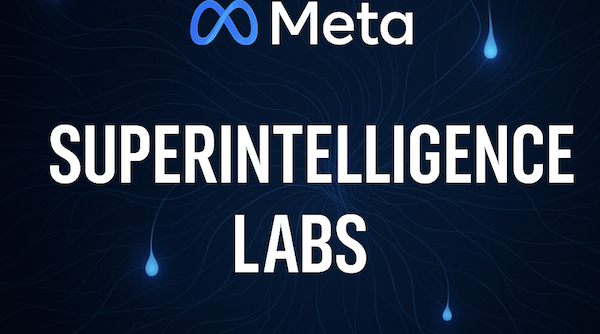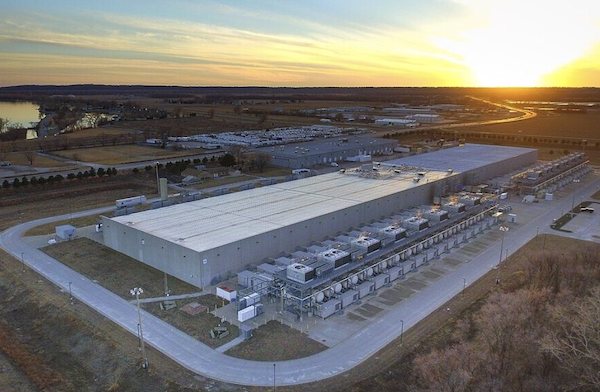Market scorecard
US markets returned to their winning ways yesterday, with tech stocks leading the charge. The so-called Magnificent Seven reached a new all-time high, thanks to smart moves from Apple, Amazon and Tesla. Apple's gains were due to Tim Cook's photo-op at the White House, where they pledged to onshore some aspects of iPhone production, after a $100 billion spending plan.
In company news, McDonald's served up a solid 3.0% share price move as sales improved last quarter. Elsewhere, Walt Disney slipped 2.7% after its third-quarter revenue missed expectations, and it announced a deal between its ESPN unit and the NFL. Finally, e-commerce platform Shopify soared 21.9% after posting much stronger earnings than expected.
In summary, the JSE All-share closed up 0.34%, the S&P 500 rose 0.73%, and the Nasdaq ended a delicious 1.21% higher. That's more like it.
Our 10c worth
Bright's banter

Last week, Meta dropped quarterly results so good it had Wall Street clapping like proud parents at a school play. Shares jumped 12% to a record $779.34 after the company crushed Q2 earnings, beat every estimate in sight, and then added a cherry on top: higher sales guidance and a clear signal that it's going all-in on artificial intelligence.
Meta's hardware division (Reality Labs) is still burning cash, $4.5 billion in Q2 losses alone, but that's a known drag. The real action is in software and infrastructure.
CFO Susan Li put it plainly: now's the time to invest in AI, and Meta's doing just that. Capex is climbing fast, with early guidance already pointing to more spending in 2026. Google just upped its capex forecast to $85 billion. Microsoft plans to spend $30 billion this quarter alone, 50% more than last year. There's an arms race happening, and Meta is one of the frontrunners.
On top of that, Meta is hiring unicorn-calibre talent to fine-tune their Llama AI models. The goal is to build human-level AI and spread it across Meta's entire ecosystem (see Paul's piece below).
The good news is that Meta has the cash to invest in further growth, thanks to its thriving ad business. Their ad machine isn't just humming, it's roaring. Revenue jumped 22% year-on-year to $47.5 billion, smashing Wall Street's expectations by the widest margin in over four years. Sales for the current quarter are forecast to come in at $47.5 to $50.5 billion (analysts were only expecting $46.2 billion). It's not just about volume; it's smarter, more expensive ads powered by AI that deliver more value to advertisers.
We like Meta because it's printing money now, reinvesting it into a future that's already arriving, and still trading at a forward P/E that doesn't make your eyes water. The stock was already up 19% this year before the results, and there's more room to run. Meta's not just chasing the future, it's monetising it.
One thing, from Paul

Mark Zuckerberg is really going hard on artificial intelligence. Meta is spending hundreds of billions of dollars on new data centers and offering huge sign-on bonuses and pay packages to attract the best AI engineers. They are being poached from Apple, OpenAI, Anthropic, DeepMind, and GitHub.
I was intrigued to see the names and ages of these new Meta employees. They are called the Superintelligence Team.
Bowen Zhang (aged 26) just left Apple, hot on the heels of his boss Ruoming Pang, who got a compensation package valued at more than $200 million. Another key team member is chief scientist Shengjia Zhao, who is 30.
The top dog is Alexandr Wang, who joined Meta after the $14.3 billion acquisition of his startup, called Scale AI. He's US-born and only 28 years old. That's him in the picture here.
Byron's beats

The annual spend on data centres in the US has officially caught up with the annual spend on office construction. Think about how many office blocks you have seen versus data centres? I personally have never even seen a real-life data centre. I have certainly seen thousands of office blocks. The fact that companies are spending similar amounts of money building these centres tells a story.
I saw another interesting stat yesterday that suggests spending on AI in the US has already reached 1.2% of GDP. In the 1880s, railroads attracted around 6% of GDP, and more recently, in the 2010's, telecom spend was around 1% of GDP.
We are witnessing a generational technological shift that is going to change almost every facet of our lives and it is very exciting.
Michael's musings

Yesterday I wrote about how IBM retrenched 700 human resources employees after implementing AI systems to do basic routine tasks. What might surprise you is that IBM's headcount actually increased in that period. They used those AI cost savings to hire people in parts of the business that need a human touch. IBM decided they would rather have fewer HR officers and more people going out generating revenue.
Sales and marketing people need to be in face-to-face meetings. If you are negotiating a large, multi-year supply agreement, you don't want to be dealing with an AI chatbot, you want to build trust and familiarity with real people. There's an argument to be made that AI won't result in carnage for the job market, it will just shift jobs to new sectors.
There was a similar debate when cars started to replace horses. The fear was that a collapsing horse industry would be an economic catastrophe. What ended up happening was that new industries emerged, such as tourism, motor vehicle sales and servicing. Those new industries created many more jobs than those that were lost.
Linkfest, lap it up
People have become less social in the digital age. Here's an interesting way to meet new people - Buy a ticket to a stranger's wedding.
Turn a wasted day into a successful one. How you spend your "extra" time is the difference between success and mediocrity - The 5-hour rule.
Signing off
Asian markets are mostly in the green this morning, with gains in Australia, Hong Kong, Japan, mainland China, and South Korea. Taiwan set the pace, up more than 2.2%. The upbeat mood follows comments from President Trump suggesting the US is edging closer to a trade deal with China. India was the outlier, trading slightly lower. They are in the naughty corner.
In local company news, Glencore reported a 14% drop in earnings to $5.43 billion, weighed down by a slump in copper output and a sharp 21% slide in coal prices over the past year.
US equity futures are looking good. The Rand has strengthened to around R17.76 to the US Dollar.
Eli Lilly, Toyota, Gilead Sciences, and ConocoPhillips will report earnings today.
Time is rolling by. Remember to live in the moment.